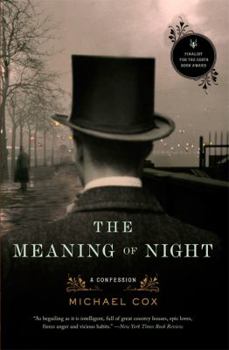The Meaning of Night: A Confession
(Book #1 in the The Meaning of Night Series)
Select Format
Select Condition 
Book Overview
After killing the red-haired man, I took myself off to Quinn's for an oyster supper. So begins the enthralling (Booklist, starred review) and ingenious (Boston Globe) story of Edward Glyver, booklover, scholar, and murderer. As a young boy, Glyver always believed he was destined for greatness. A chance discovery convinces him that he was right: greatness does await him, along with immense wealth and influence. Overwhelmed by his discovery, he will stop at nothing to win back a prize that he knows is rightfully his.
Glyver's path to reclaim his prize leads him from the depths of Victorian London, with its foggy streets, brothels, and opium dens, to Evenwood, one of England's most beautiful and enchanting country houses, and finally to a consuming love for the beautiful but enigmatic Emily Carteret. His is a story of betrayal and treachery, of death and delusion, of ruthless obsession and ambition. And at every turn, driving Glyver irresistibly onward, is his deadly rival: the poet-criminal Phoebus Rainsford Daunt. The Meaning of Night is an enthralling novel that will captivate readers right up to its final thrilling revelation.






